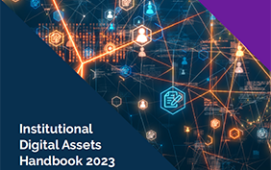
Horizon Trading Solutions has announced the launch of Horizon Compass, a next-generation Smart Order Router (SOR) designed to help institutional and retail brokers manage execution quality and market complexity more effectively.
Targeting both large and regional brokers, the new SOR is engineered to meet evolving market demands, including the increasing fragmentation of liquidity and sustained high trading volumes. It connects to more than 80 trading venues, providing access to lit markets, dark pools, and conditional order types, while supporting compliance with regulatory requirements such as MiFID II and Reg NMS through real-time monitoring and audit capabilities.
Built on Aeron, the open source high-performance messaging platform, Horizon Compass offers low-latency, high-throughput trading, aimed at maintaining stability and scalability in volatile conditions. The SOR integrates natively with Horizon’s algorithmic trading suite, allowing firms to deploy proprietary or pre-built execution strategies without relying on third-party infrastructure.
By enabling full control over execution and offering a scalable technology framework, Horizon aims to support regional brokers in improving service delivery and expanding their competitive position against larger market participants.
In this exclusive interview for TradingTech Insight, Sylvain Thieullent, CEO of Horizon Trading Solutions, discusses the new offering.
TTI: First of all, can you confirm which asset classes Horizon Compass covers? Is it limited to equities, or does it extend beyond that?
ST: It’s primarily focused on equities. That’s where Smart Order Routers are most essential. While there are routers in FX and other asset classes, those aren’t our core focus for this product.
TTI: And geographically, which markets does it support?
ST: Compass covers Europe, including the UK, and North America. The market structures in these regions differ quite a bit, not just in terms of venues, but also in the types of participants, whether retail or institutional. Each group has distinct needs, which adds complexity to the product design.
As a vendor, you don’t want to build a bespoke solution for every client. You need something robust out of the box, but also flexible enough to allow for differentiation. That’s the key challenge: balancing standardisation and customisation, especially given the investment involved.
In the market today, you won’t find many vendors offering just a Smart Order Router as a standalone product. Typically, clients have to purchase a full suite from the major providers. Alternatively, institutions can develop their own in-house, but then they face challenges with obsolescence. A homegrown solution might perform well for a year or two, remain adequate for five years, but after that it can become problematic. Markets evolve, customer needs change, and regulations shift. Keeping the system current becomes difficult and costly.
Our approach is to offer Compass as a critical part of a client’s trading infrastructure, one that we continuously develop and maintain, while also offering other modules where needed.
TTI: So Horizon Compass can be deployed either as a standalone Smart Order Router or as an extension of Horizon’s broader trading framework?
ST: That’s right. Clients can deploy Compass independently or integrate it within our existing trading suite. Through components like Horizon Extend, they gain a toolbox that allows for customisation while still benefiting from the stability of a core product. This makes version control, upgrades, and migrations much smoother. That level of flexibility and integration is a key differentiator for us.
TTI: Can you give a high-level overview of how Compass makes routing decisions? I’m particularly interested in how it handles non-displayed liquidity in dark pool-type venues. Is there any AI or machine learning involved, or is it purely rules-based?
ST: When we designed Compass, we first looked at the overall business logic and the workflows that would be required. It’s quite a complex system, and our goal was to deliver something sophisticated that clients could use immediately, a tool that’s effective from day one with fast time-to-market.
In terms of AI, we do incorporate it, but it’s optional. One application is in detecting changes in liquidity regimes and responding accordingly. We’ve published a research paper on this topic, and that capability is available within the product. Clients can choose to adopt and customise it as needed.
That said, our primary objective is to provide a platform that integrates seamlessly with clients’ own models and data, whether internal or from external vendors. Time to market is critical, so we focus on enabling clients to evolve their models quickly and efficiently.
We’ve deliberately avoided building a black-box, AI-only system. In execution, which is a highly regulated and transparent domain, that kind of opacity doesn’t work well. Still, the deeper you go into dark and non-displayed venues, the more valuable AI becomes. Our role is to offer the tools. How clients use and orchestrate them is up to them.
TTI: Any final thoughts?
ST: We began this project over a year ago, and given the volatility we’ve seen in the markets in the last couple of months, the timing has worked out well. The unpredictable nature of events and trading conditions has made some legacy solutions harder to use effectively.
Compass is built to provide real-time execution monitoring and risk management, helping minimise slippage. We’re pleased that it gives clients the adaptability and oversight they need in today’s market environment.
Subscribe to our newsletter




